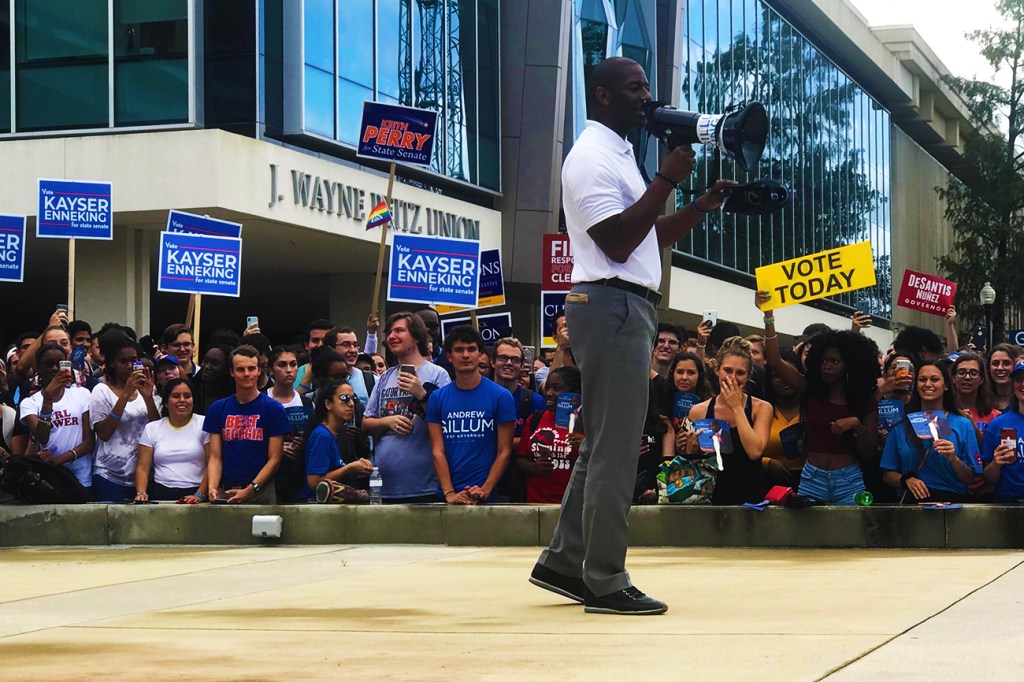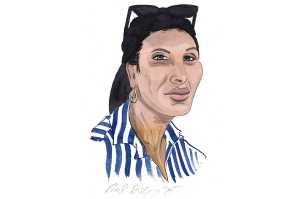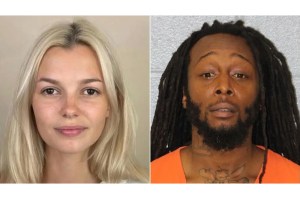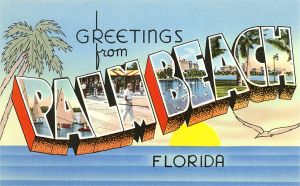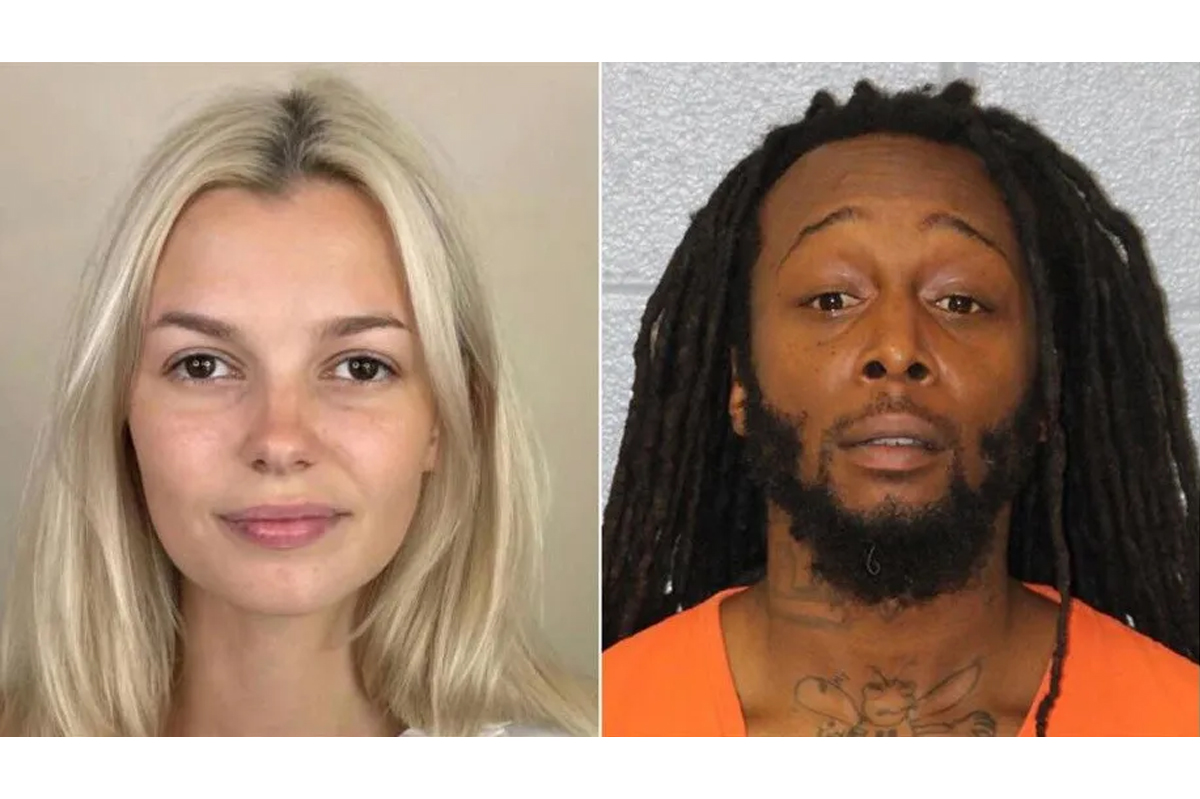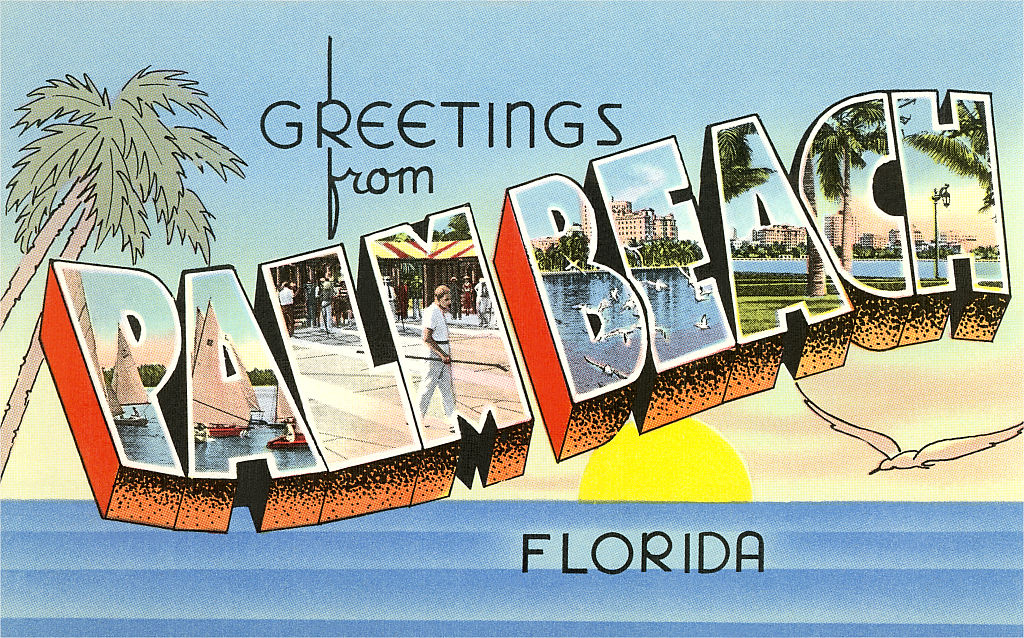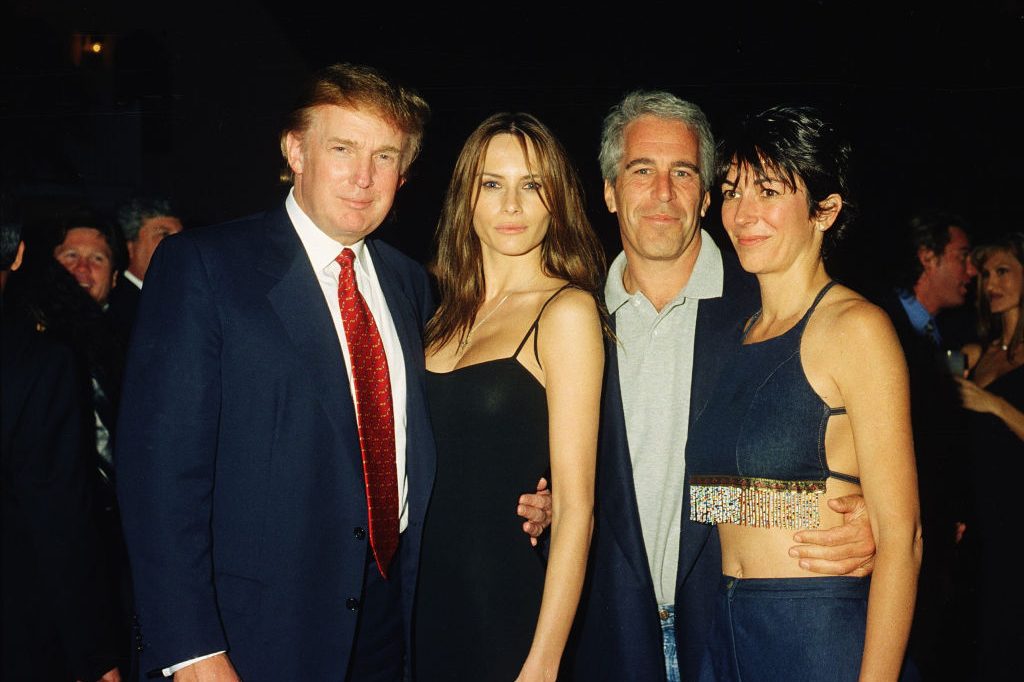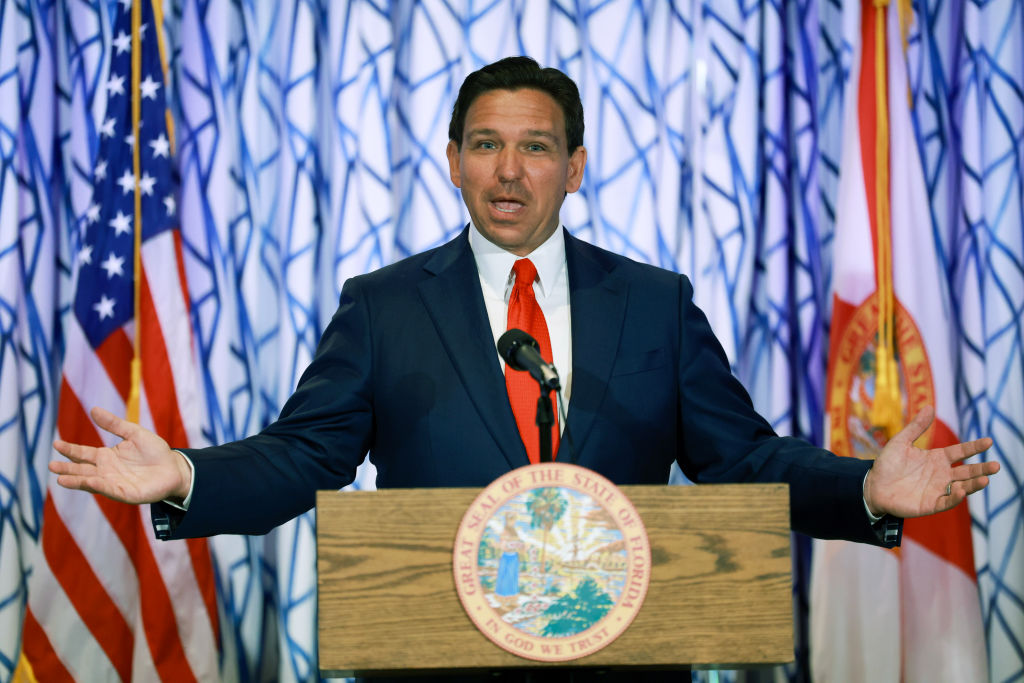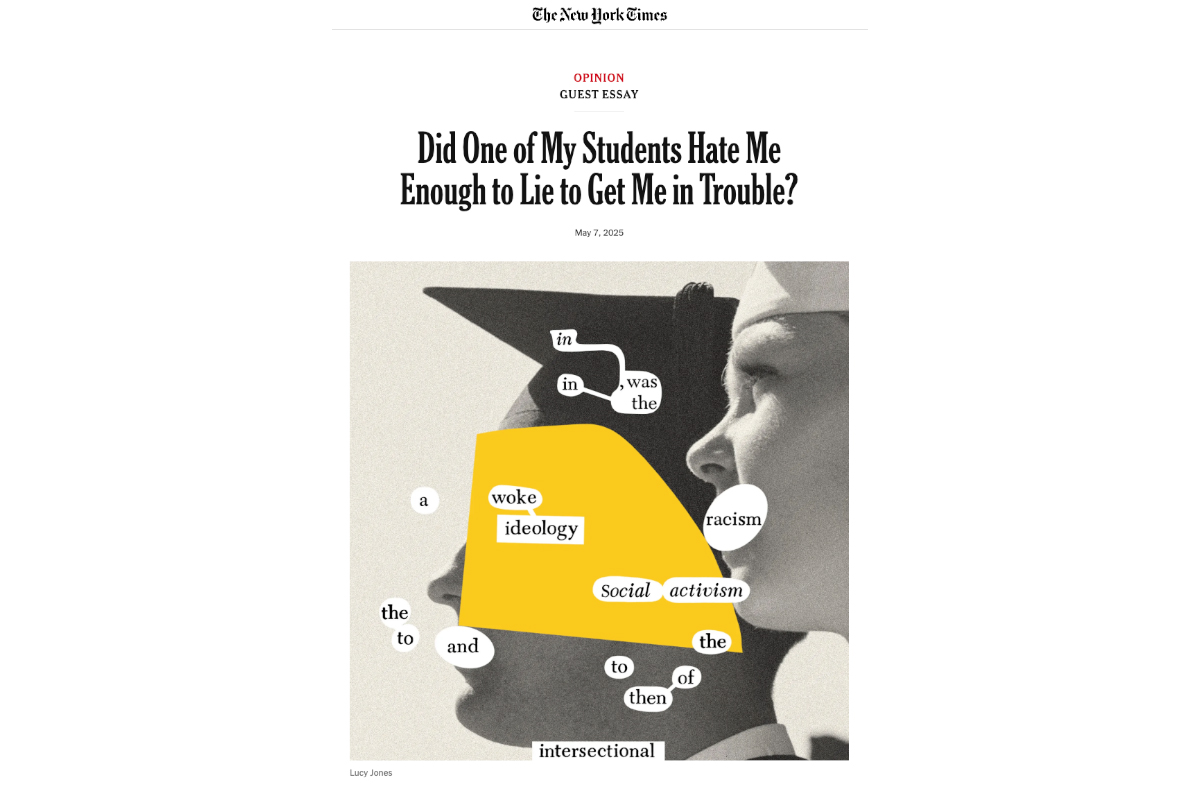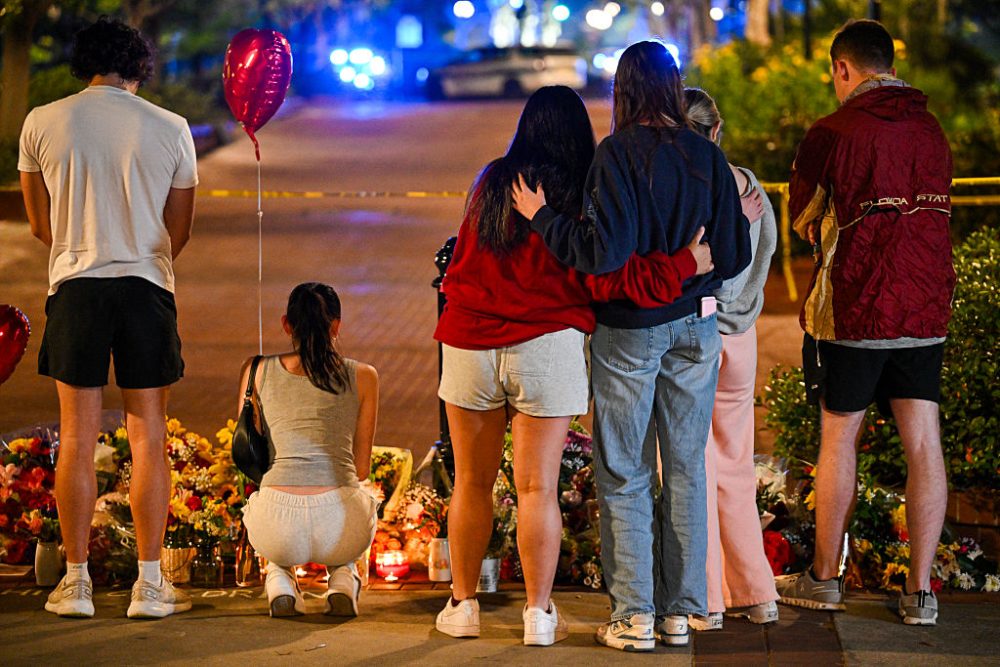Sprawled across the Young Americans for Freedom table, at the University of Florida, are pins and stickers reading, ‘I survived 4 years of liberal indoctrination,’ ‘Buckley, Reagan, Goldwater,’ as well as books like Riding with Reagan. It’s a window display of righteous conservatism, the ghosts of Republicans past.
Florida is the South, but stubbornly purple. The most populated areas of Florida are blue, the rest of the state red. Miami is sometimes referred to as New York South – Dade-County, for example, has gone blue in presidential elections since 1996. And in Gainesville, the presence of a large university mitigates strong Republican sentiments, despite the efforts of some young activists.
Tiny margins decide elections here – think Bush v. Gore. Our gubernatorial election looks a lot like what the 2016 Presidential Election would have been, had Bernie Sanders won the Democratic nomination. Andrew Gillum is endorsed by Sanders; Ron DeSantis by Trump. Both candidates have pinned their colours to the masts of their endorsers. YAF member Dylan Finucan finds that disconcerting.
He said, ‘I begrudgingly voted for Ron DeSantis…I didn’t like seeing the commercial with him going “build the wall”… I was very upset at that.’ But the alternative was Gillum, and Finucan could not endorse such a progressive.
Gillum’s platform includes Medicare for All, opposition to the gun lobby, and a billion-dollar transfer from corporations to public schools. DeSantis’s favoured topics are the environment: he says he is ‘not a global warming person.’ He says he is pro-healthcare and expanding ‘patient choices’. He vehemently opposes the expansion of Medicaid.
Racial politics dominated the final debate. For Gillum, the first Black nominee for Florida Governor, whose brother was arrested on drug charges, reforming the criminal justice system is a major priority. ‘If felons don’t have the opportunity to make a living for themselves, you sometimes have people reoffending,’ Gillum said. Right now, 1.7 million are disenfranchised due to previous convictions.
The students I talk to are concerned with Amendment 4, which would restore voting rights for felons. John Etienne, 20 and Political Director of the College Democrats, said, ‘Amendment 4 and Amendment 11,’ which deletes the Savings Clause that prohibits the legislature from applying a lighter sentence after a crime has been committed, ‘are taking steps to correct the Florida criminal justice system, which is the absolute worst in the United States.’ Etienne believes current practices have reduced felons to second class citizens, suppressing a huge amount of the electorate.
At the Gillum rally at the University of Florida on Friday, he told students: ‘We’re experiencing a very dark hour,’ he told students. ‘We’re not able to have a civil discourse anymore.’ He joked that Trump and other top Republicans are mobilising to Florida to rally for DeSantis because he cannot do the job himself.
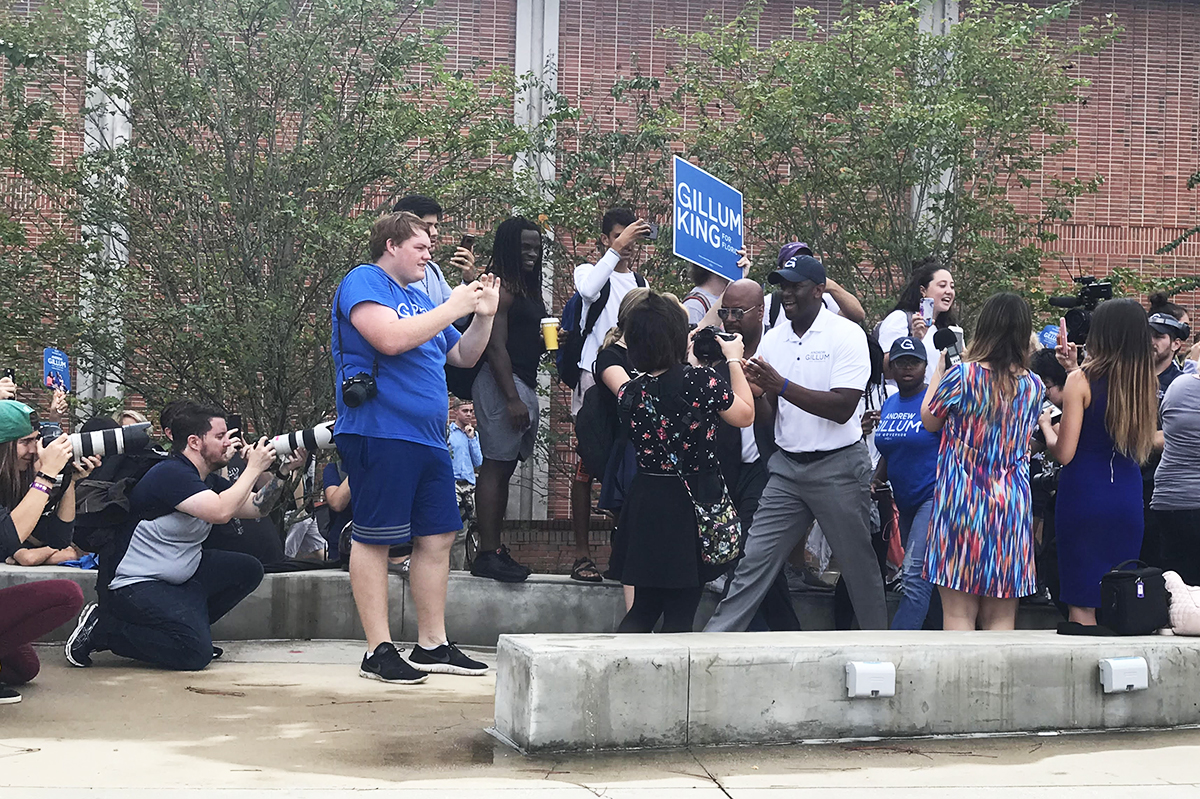
In the Senate race, Republican Governor Rick Scott opposes incumbent Democrat Senator and UF alumnus Bill Nelson. Scott’s position on climate change is concerning to Florida voters, who are now less sceptical about climate change because they have plenty of firsthand experience of extreme weather.
And Republicans may feel more comfortable voting for Nelson than they would another Democrat. During the 115th Congress, Nelson was 93 per cent more conservative than his Democratic counterparts.
Finucan, whose father’s job relies on the seasonal coming of snowbirds, cast his vote for Nelson.
‘It took me a long time in the voting booth because I was torn,’ he said. ‘I saved senate for last, and I voted for Bill Nelson. Florida’s economy is heavily based on tourism…if there’s red tide going on in the Gulf of Mexico…our family income suffers.’
In the aftermath of Hurricane Michael on the west coast of Florida, family businesses that took generations to build, historic canopy roads, lagoons and waterfront ecosystems are gone. Help is scarcely found on the Forgotten Coast. Angelica Krehl 20, is from a small island off the coast of Tallahassee.
‘Parents are bouncing from insurance companies, to Red Cross, to Salvation Army, while babies and pups wait with Memaw and Papaw in the powerless, potty-less, car-attached trailers,’ she said. ‘Parents return with the same sorry message of “we can’t help you.”’ Krehl’s point: the next Governor can help those people, and voters might be desperate enough to eschew with their usual affiliations.
In this most crucial swing state, more than 1.4 million people have already cast early ballots. In the meantime, Trump will arrive in Florida quietly concerned about the Blue Wave – he might just get caught in a riptide.



